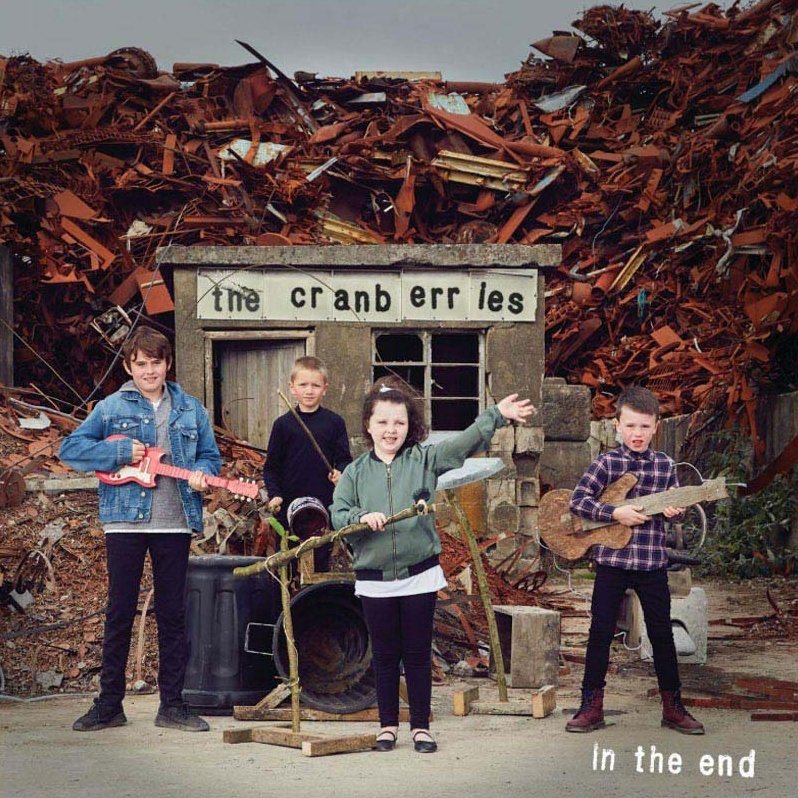Happy 30th Anniversary to The Cranberries’ debut album Everybody Else Is Doing It, So Why Can’t We?, originally released March 1, 1993.
Three decades on since I purchased The Cranberries’ Everybody Else Is Doing It, So Why Can’t We? on a rainy, late winter afternoon at Rasputin Music in Berkeley, California, my affection for the group’s debut album runs deeper than ever. However, the way that I’ve listened to the album during the past five years has been recalibrated by newfound context and heightened emotional weight, in light of Dolores O’Riordan’s tragic passing in January 2018 at the age of 46.
Invariably, the sudden and unanticipated absence of the band’s central voice and public face now alters one’s interpretation and appreciation for the group’s recorded repertoire, even if ever so slightly, as we seek to keep O’Riordan’s legacy—and our connection to it—alive through her music. As I’ve played the expansive 2018 super deluxe edition of Everybody Else Is Doing It in recent years, I’ve listened to the album differently than I ever had prior to O’Riordan’s death. My incredulity toward the unfairness of life, love and loss recontextualizes how I now process her messages throughout the set’s twelve original songs. Nevertheless, like many other lifelong Cranberries fans, my admiration for the album remains steadfast and largely unchanged.
The first fully realized recording by the Limerick, Ireland bred band originally known as The Cranberry Saw Us (a moniker they wisely simplified shortly after their formation in 1989), Everybody Else Is Doing It followed a handful of demo and official extended play releases that helped land the group their first major label deal with Island Records.
All self-professed fans of The Smiths, O’Riordan, Noel Hogan (lead guitar), his brother Mike Hogan (bass guitar), and Fergal Lawler (percussion) upped the ante for their debut album by employing the studio services of Stephen Street. The London-born Street had performed engineer duties for much of their musical heroes’ discography and produced their swan song LP, 1987’s Strangeways, Here We Come, later collaborating with the likes of Morrissey and Blur, among other notable British artists, in addition to overseeing The Cranberries’ subsequent efforts No Need to Argue (1994), Wake Up and Smell the Coffee (2001), and Roses (2012).
Comprised of twelve meticulously crafted, compact songs with an average run time of 3:20, Everybody Else Is Doing It is wholly devoid of filler and packs a melodic, melancholic punch very much in the vein of The Smiths’ most beloved fare, albeit without their infamous frontman’s caustic swagger and sneer. And while the soaring, evocative soundscapes constructed by the Hogan brothers and Lawler warrant plenty of praise, it is unequivocally O’Riordan’s versatile vocals and introspective lyrics that command the most rapt attention.
Listen/Watch (Playlist):
Just 21 years old at the time of the album’s arrival, O’Riordan invites the listener on an autobiographical journey from adolescence to adulthood, the vicissitudes of young love providing the central thematic focus from beginning to end. "I know exactly what every song on that album was about," O'Riordan explained to Rolling Stone in 1995. "And I know exactly what night I wrote it on and why I wrote it. And I'm kind of proud of them because they do elaborate very much how I felt at that time."
Somewhat surprisingly considering the album’s critical and commercial success, first stateside and subsequently in the UK, only two official singles were released. But each of these songs is damn near flawless. Unveiled five months before the album launch, lead single “Dreams” is an uplifting love song that finds O’Riordan reveling in new love, her sweet—yet never saccharine—vocals gliding seamlessly atop the lush, propulsive arrangement.
Even more revelatory is “Linger,” the ode to fading love that catapulted The Cranberries’ profile when MTV latched on to the black and white, Jean-Luc Godard inspired video, with radio stations across the U.S. following suit shortly thereafter. Replete with sweeping, string-laden orchestration coupled with O’Riordan’s yearning, lilting vocals, it’s a perfect specimen of pop ballad grandeur, a timeless tune that remains just as fresh and inspired today as it was thirty years ago.
Non-single standouts abound across the expanse of the album, the theme of reconciling love and loss pervasive throughout all of them. The haunting album opener “I Still Do” finds O’Riordan grappling with her conflicted feelings toward her lover. The same disposition resurfaces later on “Sunday” and “Wanted,” each propelled by jangly guitar work reminiscent of The Smiths and The Sundays’ most transcendent moments.
The music and O’Riordan’s lyrics assume a noticeably more sullen tone on the brooding “Pretty,” in which she takes a condescending lover to task, and “I Will Always,” a lovelorn, lullaby-like lament about setting her partner free to explore his independence.
Not all is weighed down by doom and gloom, however, as the percussive “How” unfurls as a seething kiss-off to a wayward lover, while “Not Sorry” serves as an anthem of redemption, with an empowered O’Riordan reclaiming her sense of self in the wake of an abusive relationship. Sonically, “Not Sorry” contains early signs of the band’s penchant for juxtaposing soft, ethereal melodies with more abrasive, thrashing guitar work, the latter of which would become more prominent in their ensuing repertoire, as best evidenced by subsequent singles such as “Zombie” and “Salvation.”
Enjoying this article? Click/tap on the album covers to explore more about The Cranberries:
Once dubbed by Rolling Stone as “Ireland’s biggest musical export since U2,” The Cranberries were initially overlooked in the UK, largely overshadowed during the much ballyhooed yet ultimately ephemeral mid ‘90s Britpop movement that saw the likes of Oasis, Blur, Suede and Pulp, most notably, rise to stratospheric heights of stardom. But while the vast majority of Britpop bands—with the exception of the Gallagher brothers’ outfit—stalled in their quest to penetrate the North American market in a meaningful way, the unassuming quartet from Limerick was able to secure a rather fruitful niche in the U.S., and one that endured with their next pair of releases, 1994’s No Need to Argue and 1996’s To the Faithful Departed.
Today, Everybody Else Is Doing It, So Why Can’t We? remains an indispensable artifact of the band’s early career, their innocence and ambition on full display, before critical and commercial acclaim deservedly greeted them. And for those of us who continue to grieve for the late Dolores O’Riordan, the dozen songs contained therein offer at least some solace that while she is no longer with us, her inimitable voice, words and spirit are eternal.
LISTEN:
Editor's note: this anniversary tribute was originally published in 2018 and has since been edited for accuracy and timeliness.



